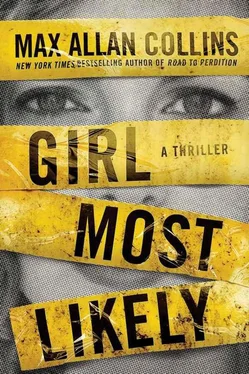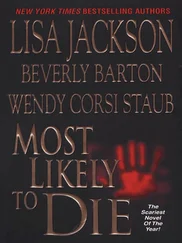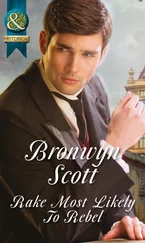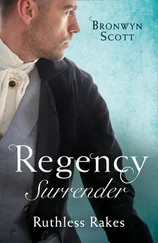Years later she had asked Pop why that poem — the romantic tale of a criminal, after all — had been something a policeman chose to share with his young daughter.
“It’s the sound of it,” he’d told her, “and it’s an exciting story, too. I wanted you to think of reading as something enjoyable, fun, not just schoolwork.”
The irony of this moment, this flashback to a poem she’d treasured as kid, was that Mr. Stock had once asked her English class if anyone had a favorite poem.
She had responded with: “‘The Highwayman,’ Mr. Stock. By Alfred Noyes.”
He had laughed and now, in her memory, she detected a cruelty in his response that she’d missed as a student.
“‘Noyes,’ I’m afraid, is a misspelling,” he’d said. “That’s corny noise, Ms. Larson.”
She’d stood up for herself but sold out her favorite poem doing so, saying, “I was only eight and didn’t know better, but I liked the way the words flowed.”
“Fair enough,” Mr. Stock had said, bestowing upon her a smile.
Overall Mr. Stock had been a positive influence, encouraging her to write, enlisting her for The Spyglass , the school paper, and The Ship’s Log , the yearbook. And, as she’d told Pop, he’d never done anything, during all that time, to make him seem a letch much less a sexual predator.
The Lake View Lodge road, this time of year, wasn’t much traveled, except for a few stretches along which were condos and elaborate rentals tied in with the place. So the approach of headlights in the left lane, someone coming home from town or heading to the lodge, was nothing to be surprised much less alarmed by.
At least not until the driver hit the brights, all but blinding her, and those unrelenting headlights swung her way, washing the Toyota in glaring light, the vehicle bearing down on her, engine roaring.
She swung the wheel right and avoided being hit, but the ditch took her, not treacherously deep but enough for the weight of the Toyota to give way to gravity and then the car rolled and as it did her right hand on the wheel twisted at the wrist, almost breaking, and when the Toyota landed at the bottom of the mini-ravine, upright, airbag not deploying on rollover, she tried to open the door with her left hand, but the door was jammed, and when she got out of her seat belt to reach over to the rider’s side door, her right wrist sprained and hurting like hell, she couldn’t open it, not with her outstretched left, either.
Footsteps in brittle snow were crunching toward her, the brightness of the headlights gone, and yet she knew it wasn’t help on the way.
Keith was finished with David Landry, who had told him of the strict locked-door policy of the rehab facility in Florida. Landry provided phone numbers and names and other contact info, so Keith could verify that the resort manager had been a virtual prisoner, unlikely to be able to slip out and make a Clearwater murder run.
Standing before the unhappy group of eight at their four tables, Keith said, “Mrs. Webster says rumor has it Ken Stock has had affairs with female students — perhaps with many over the years. Have any of you heard of that?”
Frank Wunder and his wife both shook their heads, and Landry said, “No. Never.” And Dawn didn’t react at all.
But the Braggs were exchanging troubled frowns.
“Bill?” Keith said. “Kelly? You wish to comment?”
The football coach said, “I don’t pay much attention to rumors. Repeating them just seems...” He shrugged, unwilling or unable to say more.
The girls’ gym teacher said, “I never witnessed anything. But the girls would talk. Still, it was all secondhand. Never did any of them say, ‘It happened to me.’ Always it was, ‘I know a girl who...’”
Both Braggs had trailed off, and Keith could well understand that the couple, in their situation, would be sensitive about what harm a nasty rumor could do to a good teacher’s life and career.
No longer the gracious host, Landry asked, “Are we done?”
“Wait here a moment,” he told the group.
In the hall Keith tried Ken Stock’s cell number; it went to voice mail. Then he tried the landline.
“Hello, Keith,” Mary Stock’s voice said. “What can I do for you?”
“Hi, Mary. Let me talk to Ken, please.”
“He’s not here, I’m afraid. He’s over in Dubuque doing some library research. Can I help?”
A chill went through him. “Uh, interesting. Does he do that often? Library research?”
“Oh, yes. He’s been working on a novel about the Civil War. That gets into everybody’s blood, I guess, in Galena, General Grant and all.”
“Was he researching last night, too, by any chance?”
“Why, yes. He’s really getting into it these days.”
“Thanks, Mary. I’ll call again later.”
He clicked off.
Stock was their killer, all right — and, on his cell, Stock had pretended to be home when he spoke to Krista, summoning her to come meet him. What exactly that portended, Keith did not know.
He only knew he had to move, and move fast.
He rushed back into the banquet hall, grabbed his jacket, and was about to speak, when Bill Bragg spoke up first.
“I don’t know if it’s important, Keith,” the coach said. “But I asked Ken today if he’d been called about this meeting. And he said no.”
Keith frowned and held up a hand. “Everyone please stay out here. Why don’t you go to the lounge, relax and have a drink. Run a tab on me, David.”
Everyone thought that was a good idea, but Keith was already gone.
Krista clambered over into and across the rider’s seat and, using her left hand, opened the door. She climbed out, got her feet under her, and looked back toward the road. Down the drop-off came a figure, vague under the cloudy sky. Then the clouds moved and moonlight lit him momentarily, like a strobe light, just long enough to reveal Ken Stock, in a brown leather jacket over the tie and khakis he’d no doubt worn when he stood before his students at GHS today, telling them what poetry to like.
But in class the teacher wouldn’t have been holding in his fist a butcher knife, which under another strobe of moon gleamed and reflected and winked at her. The blade wasn’t long, maybe six inches, but it lacked the curve of most such knives, its point sharp.
He continued down the incline, not moving fast, because it was too steep to risk that, with clusters of snow here and there. She couldn’t use her right hand, the sprain making it useless, the fingers uncooperative, and when she reached over with her left to her holstered Glock, she fumbled with the self-locking strap, couldn’t work it, and then he was almost down the incline, knife in his fist held shoulder high, his eyes unblinking and zeroing in on her.
The trees were close. They didn’t offer much brush for shelter, only occasional pines among the mostly naked oaks, but if she could get in deep enough, she might tuck behind a trunk with the heft for hiding. Her feet crushed frozen remainders of snow, her boots snapping twigs and crinkling long-dead leaves.
She could hear him behind her.
He wasn’t moving as quickly as she was. The moon had found its way around the cloud cover, painting the world a blue-gray ivory now. She needed the clouds to win long enough for her to stop running and take cover and be able to get at her damn gun.
Into the woods she went.
Like Cinderella before her.
And she had been Red Riding Hood, hasn’t she?
Keith, at the wheel of the Impala, had no idea what to expect. He only knew that Stock had lured Krista out this way, that Stock had not been home when she called but somewhere presumably close, since the bastard knew about the gathering of suspects.
Читать дальше












